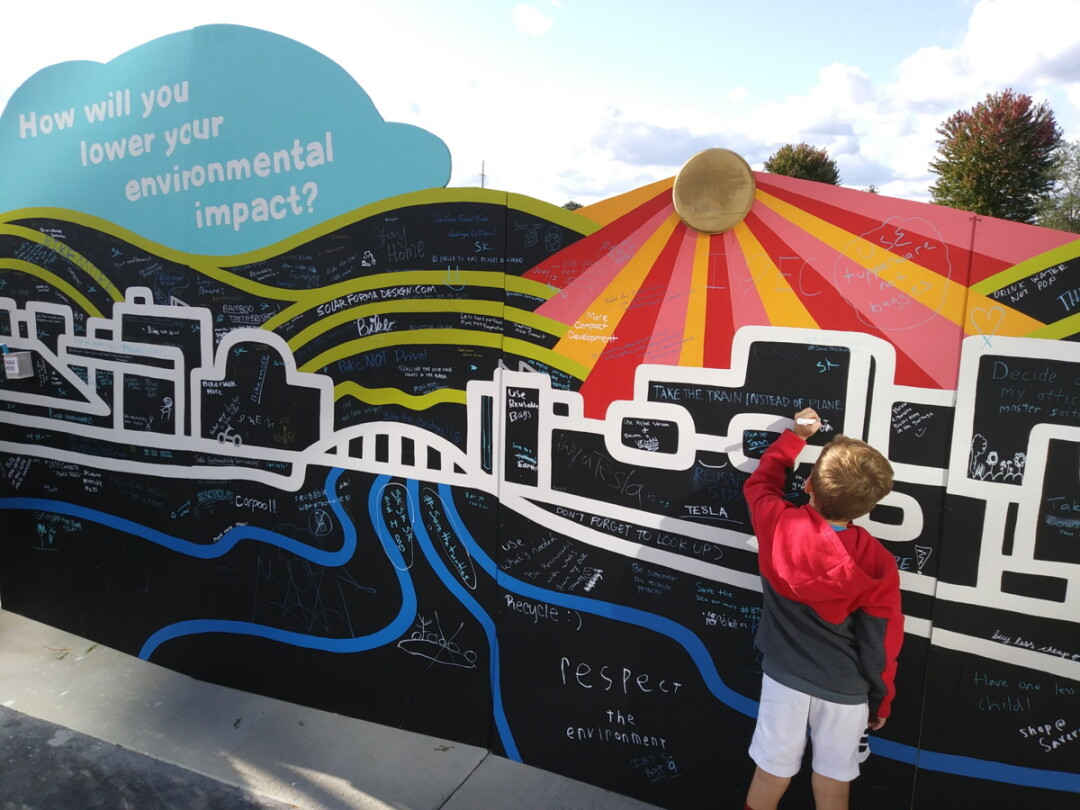Reap-ing the Benefits
city adopts ambitious plan to reach carbon-neutral goal

The Eau Claire City Council voted recently to approve a Renewable Energy Action Plan, a detailed proposal that lays out how the city can achieve 100% renewable energy and carbon neutrality by 2050.
Back in 2017, the City Council requested that the Sustainability Advisory Committee complete a report on how Eau Claire could align with the goals set forward by the Paris Agreement, whose aim was to limit temperature increase globally to less than 2 degrees Celsius. A citywide survey was conducted, and the data showed that 75% of respondents wished to pursue more aggressive goals towards offsetting climate change. With community backing, the Renewable Energy Action Plan (REAP) steering committee was formed, and a year was spent creating and finalizing a new, earth-friendly vision for Eau Claire.
“We’re all part of a big system that needs to change.” – Ned Noel, associate city planner, City of Eau Claire
The REAP lays out several categories the city will focus on, including commercial buildings and industry, residential building, transportation, waste, and biodiversity. Focusing on these sectors over the next 30 years will entail meeting challenging and not-so-challenging milestones. According to the introduction to the document, the 111-page plan “covers a 10-year timeframe to meet the city’s 2030 interim goal of a 30% greenhouse gas reduction below 2015 levels.” In the longer term, the document continues, “more transformational strategies will be needed beyond that time period and will be the focus of future planning work.” The first year of action will be spent educating the public and showcasing resources that already exist in the area that can help decrease carbon emission. The plan details all contributors to greenhouse gas emissions, comparing differences between the private and public sectors.
An executive summary (which you can find online at tinyurl.com/EauClaireREAP) slims down the plan into an accessible resource, displaying what actions will potentially be at work over the next 10 years. There is not guarantee of success, meaning the timeline is a hopeful estimate. Networking within businesses and incentive programs is important, as is providing local businesses with information on how to become more energy-efficient and the cost savings possible by switching to clean energy.
Some options being explored – and hopefully seeing success – include a zero-fare transit system, new affordable housing with renewable energy, and more solar subscription programs for residents. Focusing on small changes can also make a big difference: For example, the city now has two electric lawn mowers. The timing of this project is met with great local alignment: Xcel Energy, Eau Claire County, the Eau Claire school district, and UW-Eau Claire all have set carbon and renewable energy goals to be achieved by 2050.
Ned Noel, associate planner for the city and project lead on REAP, encourages members of the community to “find out what you love about nature and protect that resource.” Eau Claire has the opportunity to grow sustainability while preserving the natural quality of the area.
REAP’s success will rely on individual consumers making changes in their own lives in order to contribute to the overall reduction of emissions, from easy wins to challenging actions. For example, planting a tree may seem simple compared to the sometimes costly choice of buying local food.
“We’re all part of a big system that needs to change,” Noel said. Consider the ways we can contribute to lower carbon emission by consuming smartly: condense errand-running, sharing rides with a coworker, and make low-carbon installation choices as things in your home need to be replaced.
Learn more about the city’s Renewable Energy Action Plan at www.eauclairewi.gov/government/our-divisions/renewable-energy-action-plan.




















